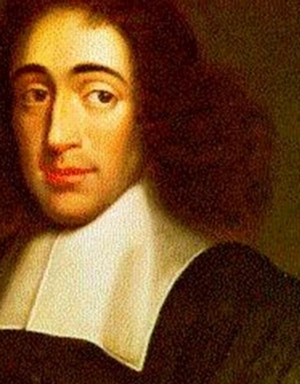Cortesy of Philosphy Pages
Spinoza maintained that human beings do have particular faculties whose functions are to provide some degree of knowledge. I typically assume, for example, that there may be some correlation between thought and extension with regard to sensations produced by the action of other bodies upon my eyes, ears, and fingertips. Even my memory may occasionally harbor some evidence of the order and connection common to things and ideas. And in self-conscious awareness, I seem to achieve genuine knowledge of myself by representing my mind to itself, using ideas to signify other ideas.
Near the end of Book II, then, Spinoza distinguished three kinds of knowledge of which we may be capable: First, opinion, derived either from vague sensory experience or from the signification of words in the memory or imagination, provides only inadequate ideas and cannot be relied upon as a source of truth. Second, reason, which begins with simple adequate ideas and by analyzing causal or logical necessity proceeds toward awareness of their more general causes, does provide us with truth. But intuition, in which the mind deduces the structure of reality from the very essence or idea of god, is the great source of adequate ideas, the highest form of knowledge, and the ultimate guarantor of truth. (II Prop. xl)

Spinoza therefore recommends a three-step process for the achievement of human knowledge: First, disregard the misleading testimony of the senses and conventional learning. Second, starting from the adequate idea of any one existing thing, reason back to the eternal attribute of god from which it derives. Finally, use this knowledge of the divine essence to intuit everything else that ever was, is, and will be. Indeed, he supposed that the Ethics itself is an exercise in this ultimate pursuit of indubitable knowledge.
No hay comentarios:
Publicar un comentario